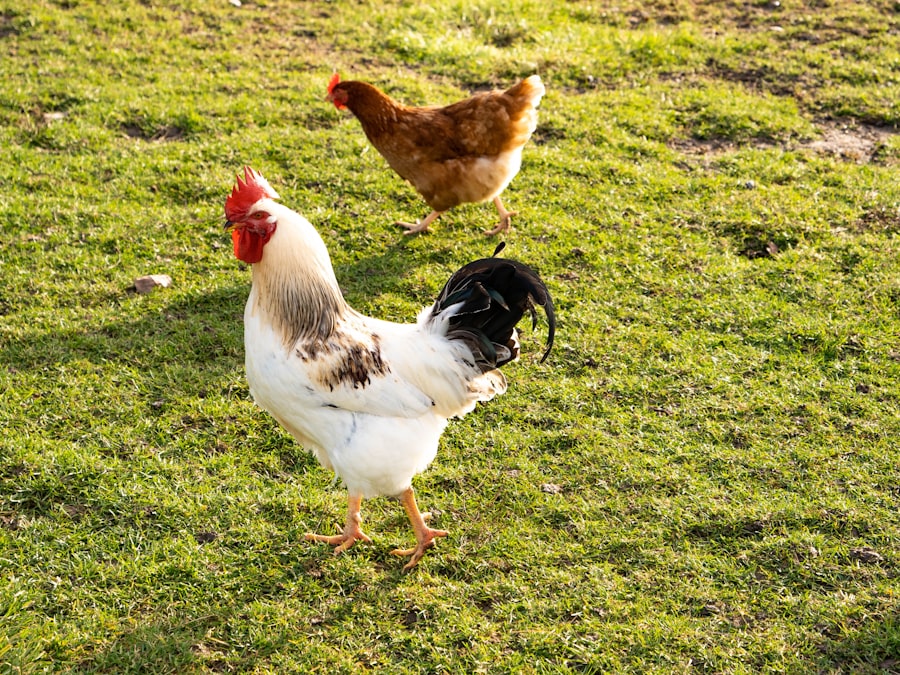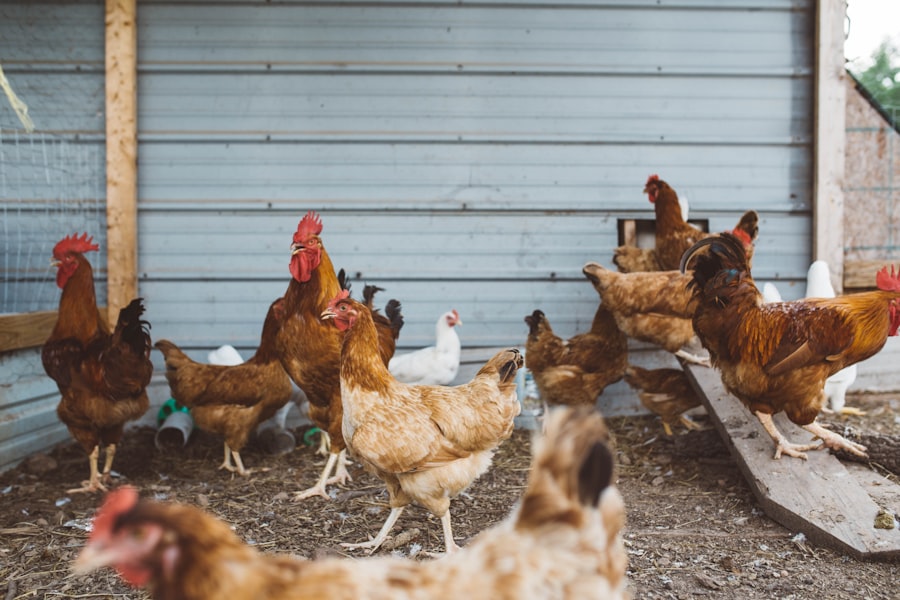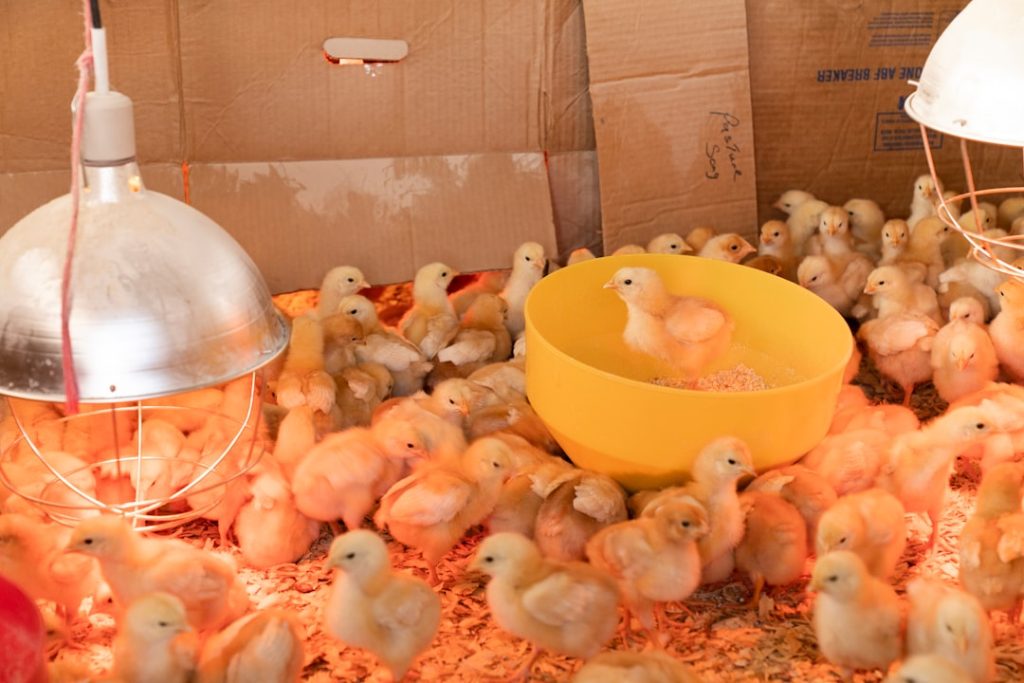When selecting a chicken breed for a backyard flock, several factors should be considered. The Brahma chicken is a popular choice known for its large size, gentle temperament, and attractive feather patterns. This breed is particularly well-suited to colder climates due to its cold hardiness.
Brahma chickens are primarily raised for meat production rather than egg-laying. They require more space than smaller breeds due to their size and thrive in free-range environments where they can roam and forage. While they excel in colder climates, Brahma chickens may not perform as well in extremely hot weather.
When choosing a chicken breed, it is essential to consider:
1. The intended purpose of the flock (meat production, egg-laying, or dual-purpose)
2. Available space for housing and ranging
3.
Local climate conditions
4. Desired temperament and characteristics of the birds
Brahma chickens are an excellent choice for those seeking a large, docile breed that is well-adapted to colder regions and has a friendly disposition. However, they may not be ideal for those primarily interested in egg production or those living in very hot climates with limited space.
Table of Contents
Key Takeaways
- When choosing a breed, consider the climate, space, and purpose of raising chickens
- Set up the coop with proper ventilation, nesting boxes, and roosting bars for comfort and safety
- Provide a balanced diet with a mix of grains, protein, and fresh greens for optimal nutrition
- Regularly monitor the health of the chickens and provide necessary vaccinations and treatments
- Handle and socialize the chickens from a young age to ensure they are comfortable and friendly
- Understand the breeding and hatching process to successfully raise new generations of chickens
- Keep Brahma chickens happy and healthy by providing ample space, enrichment, and social interaction
Setting Up the Coop
Space and Roosting Requirements
It’s important to provide at least 4 square feet of space per chicken inside the coop, as well as plenty of roosting space. Additionally, Brahma chickens will need a large nesting box to accommodate their size. The nesting box should be filled with clean bedding and placed in a quiet, secluded area of the coop to provide a comfortable and private space for laying eggs.
Flooring and Lighting Considerations
In addition to providing ample space, it’s important to consider the flooring of the coop. Brahma chickens are heavy birds and can be hard on the ground they walk on. Providing a solid, well-drained floor will help prevent injury and keep the coop clean and dry. It’s also important to provide plenty of natural light in the coop to promote healthy egg production and overall well-being.
Outdoor Space and Free-Ranging
Finally, it’s important to consider the outdoor space for your Brahma chickens. They will thrive in a free-range environment with plenty of space to roam and forage. If free-ranging is not an option, providing a spacious outdoor run will help keep your Brahma chickens happy and healthy. Overall, setting up a coop for Brahma chickens requires careful consideration of their size and needs. Providing ample space, a well-ventilated and predator-proof coop, and plenty of natural light will help ensure that your Brahma chickens thrive in their new home.
Feeding and Nutrition

Feeding and nutrition are crucial aspects of keeping Brahma chickens happy and healthy. As with any breed of chicken, it’s important to provide a balanced diet that meets their nutritional needs. Brahma chickens are known for their large size and can be prone to obesity if overfed, so it’s important to monitor their food intake and provide a diet that is appropriate for their size and activity level.
A good quality layer feed is essential for hens to ensure they receive the necessary nutrients for healthy egg production. Additionally, providing access to grit and oyster shells will help support digestion and provide essential calcium for strong eggshells. In addition to a balanced diet, it’s important to provide access to fresh water at all times.
Brahma chickens, like all chickens, require clean water for hydration and overall health. It’s important to regularly clean and refill waterers to prevent contamination and ensure that your chickens have access to clean water at all times. In addition to their regular feed, Brahma chickens will also benefit from occasional treats such as fruits, vegetables, and mealworms.
These treats can be used as a supplement to their regular diet and can provide enrichment and variety in their diet. Overall, feeding and nutrition are crucial aspects of keeping Brahma chickens happy and healthy. Providing a balanced diet, access to fresh water, and occasional treats will help ensure that your Brahma chickens receive the nutrients they need to thrive.
Health and Wellness
Maintaining the health and wellness of your Brahma chickens is essential for keeping them happy and thriving in your backyard flock. Regular health checks are important for monitoring the overall well-being of your chickens. This includes checking for signs of illness or injury, as well as monitoring their weight and overall condition.
It’s also important to provide regular preventative care such as deworming and parasite control to help keep your Brahma chickens healthy. In addition to regular health checks, it’s important to provide a clean and well-maintained living environment for your Brahma chickens. This includes regularly cleaning the coop and nesting boxes to prevent the buildup of bacteria and parasites.
Providing clean bedding and ensuring good ventilation will help prevent respiratory issues and other health problems. It’s also important to provide regular access to dust baths, as this helps keep your chickens’ feathers clean and free from parasites. Another important aspect of maintaining the health and wellness of your Brahma chickens is providing proper nutrition.
As previously mentioned, providing a balanced diet with access to fresh water is essential for their overall health. Additionally, providing opportunities for exercise and mental stimulation will help keep your Brahma chickens healthy and happy. Overall, maintaining the health and wellness of your Brahma chickens requires regular health checks, preventative care, a clean living environment, proper nutrition, and opportunities for exercise and mental stimulation.
Handling and socialization are important aspects of keeping Brahma chickens happy and well-adjusted in your backyard flock. While Brahma chickens are known for their gentle nature, it’s still important to handle them regularly from a young age to help them become comfortable with human interaction. This will make it easier to handle them for health checks or other necessary tasks as they grow older.
In addition to handling, providing opportunities for socialization with other chickens is important for their overall well-being. Chickens are social animals and thrive in environments where they can interact with other members of their flock. Providing ample space for them to roam and interact with each other will help keep your Brahma chickens happy and well-adjusted.
It’s also important to provide opportunities for mental stimulation through enrichment activities such as providing perches or toys in the coop or run. This will help prevent boredom and encourage natural behaviors such as roosting or foraging. Overall, handling and socialization are important aspects of keeping Brahma chickens happy and well-adjusted in your backyard flock.
Regular handling from a young age, opportunities for socialization with other chickens, and providing enrichment activities will help ensure that your Brahma chickens thrive in their new home.
Breeding and Hatching

Selecting Breeding Stock
If you’re interested in breeding your Brahma chickens, it’s important to carefully select breeding stock with desirable traits such as size, coloration, and temperament. It’s also important to ensure that you have enough space and resources to accommodate breeding pairs or groups.
Hatching Eggs
When it comes to hatching eggs, providing a suitable incubator or broody hen is essential for successful hatching. If using an incubator, it’s important to carefully monitor temperature and humidity levels throughout the incubation period to ensure optimal conditions for hatching. If using a broody hen, providing a quiet and secluded nesting area will help encourage successful hatching.
Caring for Chicks
Once the eggs hatch, it’s important to provide proper care for the chicks including access to heat lamps or brooding areas, clean bedding, and access to chick starter feed and fresh water. It’s also important to monitor the health of the chicks closely during the first few weeks of life to ensure they are thriving.
Ensuring Successful Breeding and Hatching
Carefully selecting breeding stock with desirable traits, providing suitable incubation or brooding conditions, and providing proper care for the chicks will help ensure successful breeding and hatching experiences.
Tips for Keeping Brahma Chickens Happy and Healthy
Keeping Brahma chickens happy and healthy requires attention to their specific needs as a large breed with gentle dispositions. Providing ample space both in the coop and outdoor run is essential for their well-being. Additionally, ensuring proper nutrition with access to fresh water at all times is crucial for their overall health.
Regular health checks including monitoring weight, signs of illness or injury, as well as preventative care such as deworming are important aspects of maintaining their health and wellness. Providing opportunities for handling from a young age as well as socialization with other chickens will help keep them well-adjusted in your backyard flock. Breeding and hatching can be an exciting aspect of keeping Brahma chickens in your backyard flock if done carefully with attention to selecting breeding stock with desirable traits as well as providing suitable incubation or brooding conditions.
In conclusion, keeping Brahma chickens happy and healthy requires attention to their specific needs including ample space, proper nutrition, regular health checks, opportunities for handling and socialization, as well as careful breeding and hatching practices. With proper care and attention, Brahma chickens can thrive in your backyard flock and bring joy to your homestead for years to come.
If you’re interested in keeping Brahma chickens, you may also want to consider raising ducks. Poultry Wizard has a helpful article on what to feed ducks to ensure they stay healthy and happy. Just like with chickens, providing the right diet is essential for their well-being.
FAQs
What are Brahma chickens?
Brahma chickens are a large breed of chicken that originated in the United States. They are known for their gentle nature, cold hardiness, and beautiful feather patterns.
How do you keep Brahma chickens?
To keep Brahma chickens, you will need a spacious and secure coop or housing to protect them from predators and the elements. They also require a balanced diet of high-quality chicken feed, access to fresh water, and regular health checks.
What should I consider when keeping Brahma chickens?
When keeping Brahma chickens, it’s important to consider their size and space requirements, as well as their need for protection from extreme weather conditions. Additionally, providing them with a suitable diet and regular health care is essential for their well-being.
What are the benefits of keeping Brahma chickens?
Brahma chickens are valued for their large size, gentle temperament, and cold hardiness. They also produce a good amount of meat and are known for their beautiful appearance, making them a popular choice for backyard chicken keepers.
Are there any specific health concerns when keeping Brahma chickens?
Brahma chickens are generally hardy, but they can be prone to certain health issues such as bumblefoot, respiratory infections, and obesity. Regular health checks and proper care can help prevent these issues.
Meet Walter, the feathered-friend fanatic of Florida! Nestled in the sunshine state, Walter struts through life with his feathered companions, clucking his way to happiness. With a coop that’s fancier than a five-star hotel, he’s the Don Juan of the chicken world. When he’s not teaching his hens to do the cha-cha, you’ll find him in a heated debate with his prized rooster, Sir Clucks-a-Lot. Walter’s poultry passion is no yolk; he’s the sunny-side-up guy you never knew you needed in your flock of friends!







